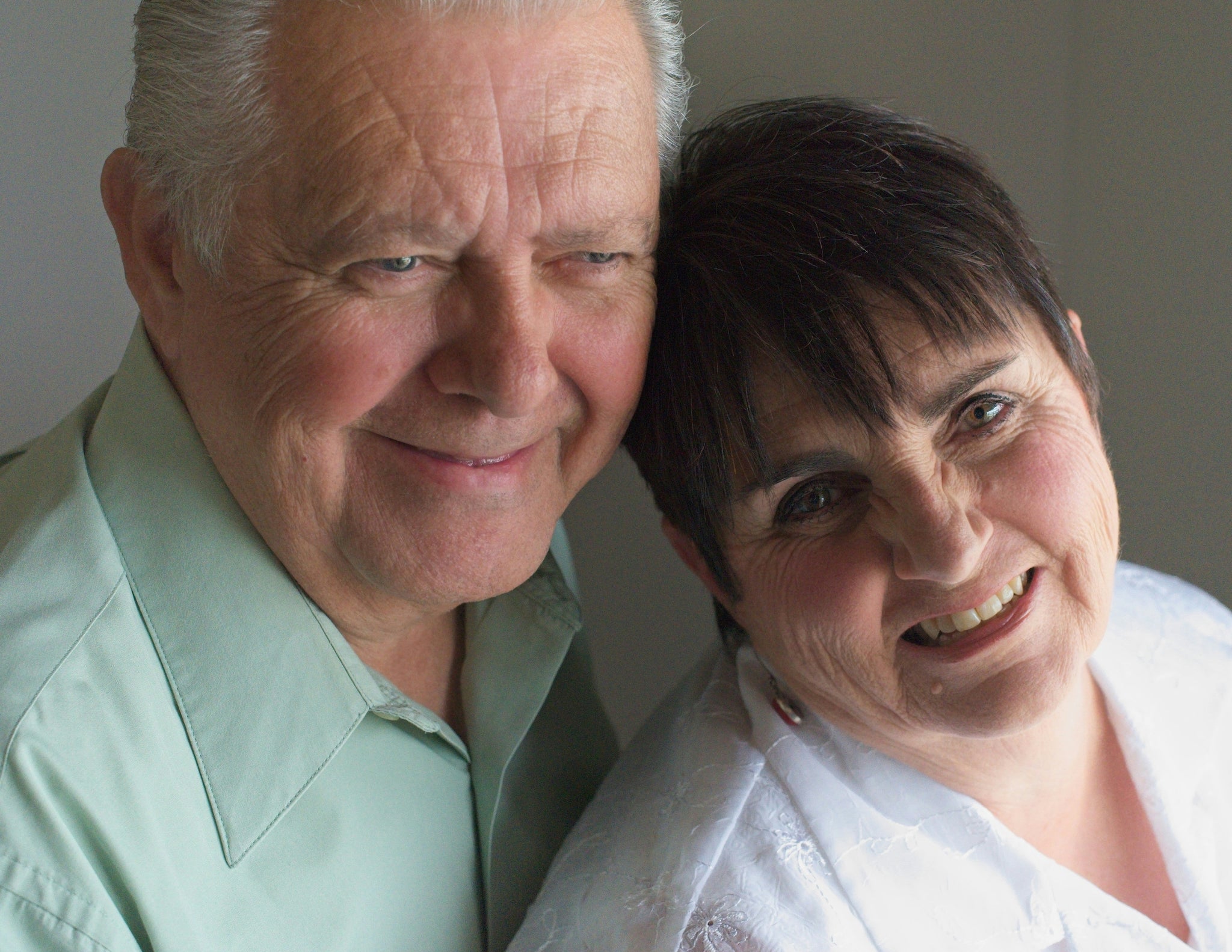Blog
Find the information you need to understand Alzheimer's disease.

Can Coenzyme Q10 Help Prevent Alzheimer’s? Here’s What You Should Know
Alzheimer’s disease (AD) is one of the biggest health challenges of our time. As the population ages, more people are affected by dementia—currently 50 million worldwide, and that number is expected to hit 150 million by 2050. One supplement that’s been getting a lot of buzz lately is Coenzyme Q10 (CoQ10). It’s often marketed as something that “protects brain health” and “reduces dementia risk.” But does it live up to the hype? Can it actually prevent Alzheimer’s?

Donepezil Hydrochloride Tablets: A Detailed Look at the Most Common Dementia Medication
When you hear “Alzheimer’s disease,” your first thought may be that it’s an incurable condition. But what you might not know is that a drug called donepezil hydrochloride (Donepezil) has helped thousands of families slow the progression of this disease and preserve precious moments of clarity. It's not a miracle cure—but it's one of the most effective medications currently available for treating dementia. In this article, we’ll break down how donepezil works, who it’s for, and how to use it safely and wisely.

The 9 Best Foods to Fight Dementia — How Many Are You Eating
As we age, memory lapses and cognitive fog can feel like a normal part of life. But mounting research shows that diet plays a powerful role in brain health. Certain foods are loaded with nutrients that may help slow cognitive decline, protect brain cells, and even lower the risk of dementia. In this article, we’ll explore 9 science-backed superfoods you can start eating today to support a sharper, healthier brain in the years ahead.

Are You at Risk for Alzheimer's? 7 High-Risk Groups And How to Protect Your Brain
Alzheimer’s isn’t just an “old people’s disease.” Some groups are more vulnerable than others. Find out if you're at risk — and what you can do today to fight back.

Alzheimer’s Brain vs. Normal Brain: What’s the Difference Between the Two?
Alzheimer’s disease doesn’t just mess with your memory—it changes the brain in big ways. Important areas like the hippocampus shrink, brain cells die off, and harmful stuff like plaques and tangles build up. All of this makes it harder for the brain to think, remember, and function like it should. In this article, we’ll break down what’s really going on in an Alzheimer’s brain, how it’s different from a healthy one, and why these changes cause the symptoms we see. Let’s talk about it in a way that’s easy to understand!

What Stage Is Paranoia in Dementia?
When a loved one with dementia becomes aggressive, it’s heartbreaking and overwhelming. You might feel scared and unsure how to handle the situation. But with the right strategies, you can ensure safety and reduce aggression. By understanding triggers, staying calm, and creating a soothing environment, you can make a big difference. This guide will show you how to manage violent episodes, prevent future outbursts, and know when to seek help. Keep reading to learn practical steps to protect yourself and your loved one.

What to Do With a Violent Dementia Patient?
When a loved one with dementia becomes aggressive, it’s heartbreaking and overwhelming. You might feel scared and unsure how to handle the situation. But with the right strategies, you can ensure safety and reduce aggression. By understanding triggers, staying calm, and creating a soothing environment, you can make a big difference. This guide will show you how to manage violent episodes, prevent future outbursts, and know when to seek help. Keep reading to learn practical steps to protect yourself and your loved one.

Why Is Seroquel Not Recommended for Dementia Patients?
Caring for a loved one with dementia can feel overwhelming, especially when behaviors like aggression or restlessness arise. Medications like Seroquel may seem like a quick fix, but their serious risks—strokes, falls, and worsening symptoms—make them unsafe for dementia patients. The good news? Safer, more effective alternatives exist. From non-drug strategies to healthier treatments, you can manage difficult behaviors while protecting your loved one’s well-being. Curious about how to make caregiving easier and safer? Keep reading to discover proven solutions that bring peace of mind to you and your family.

Does Metformin Cause Dementia?
Managing type 2 diabetes with metformin can feel like a double-edged sword. On one hand, it’s a trusted, effective medication that controls blood sugar and prevents complications like nerve damage and heart disease. On the other hand, questions about its impact on brain health—like the risk of dementia or memory issues—can leave you feeling uncertain.n this guide, we’ll explore metformin’s impact on your brain, who needs to be cautious, and simple tips to safeguard your cognitive health. Keep reading to take control of your health with confidence!

Can Alcohol Abuse Lead to Alzheimer’s? Exploring the Symptoms and Risks
Long-term alcohol consumption can have profound effects on the brain and may even increase the risk of Alzheimer’s disease. Are you curious about how alcohol changes the brain? What are the early symptoms? Can quitting drinking reverse the damage? In this article, we’ll explore how alcohol impacts brain health, the risks associated with Alzheimer’s, and how to distinguish alcohol-related memory issues from early signs of Alzheimer’s. Keep reading to learn how to protect your brain!

Lewy Body Dementia vs. Alzheimer’s Disease: A Comparison of the 7 Stages of Two Types of Dementia
Caring for a loved one with dementia can be overwhelming. You might notice memory loss, confusion, or unusual behaviors—but how do you know if it’s Alzheimer’s Disease (AD) or Lewy Body Dementia (LBD)? While both conditions affect the brain, they progress differently and require unique care approaches. Misdiagnosis is common, leaving families frustrated and patients without the right support. That’s why we’re here to help. In this guide, we’ll compare the 7 stages of Alzheimer’s and Lewy Body Dementia, highlight their key differences, and provide clear tips to identify and manage each condition. By understanding these distinctions, you’ll be better equipped to make informed decisions, seek timely treatment, and improve the quality of life for everyone involved.

Is Melatonin Safe for Elderly Alzheimer’s Patients? Risks and Benefits Explained
Caring for a loved one with Alzheimer’s is already challenging, but sleep issues add another layer of stress. Many patients struggle with insomnia, nighttime confusion, or agitation—problems that not only disrupt their well-being but also exhaust caregivers. Melatonin, a natural sleep-regulating hormone, offers hope by improving sleep quality and restoring disrupted circadian rhythms. It might even provide neuroprotective benefits. But is it truly safe for elderly Alzheimer’s patients? How can it be used effectively while minimizing risks like dizziness, daytime drowsiness, or interactions with other medications? In this article, we’ll explore the benefits, risks, and proper use of melatonin for Alzheimer’s patients. From safe dosing to managing side effects, we’ll help you make informed decisions to improve sleep and reduce stress for both patients and caregivers. Keep reading to discover how melatonin could make a difference for your family.

which is worse: dementia or alzheimer's
Dementia and Alzheimer’s disease may seem similar, but they’re far from the same! Dementia is a syndrome that encompasses the decline of memory, thinking, and behavior, while Alzheimer’s disease is the most common culprit behind dementia. Although their symptoms overlap, the causes, progression, and treatment approaches differ significantly. Understanding these distinctions not only helps patients find the most effective treatment but also equips families with better tools for providing care. Whether it’s the complexity of dementia or the latest breakthroughs in Alzheimer’s treatments, this article will uncover the answers you’ve been searching for!

Can Statins Lead to Dementia? What the Latest Research Says
Are statins a double-edged sword for brain health? These widely prescribed cholesterol-lowering drugs save countless lives, but fears about memory loss and dementia have left many people uncertain. Do statins really harm your brain—or could they actually protect it? In this article, we’ll uncover the truth behind these concerns, explore the latest research, and answer your most pressing questions to help you make informed decisions about your health.

Is Dementia Hereditary? Understanding the Genetic Link to Alzheimer’s
Is dementia hereditary? This is not just a scientific question but a concern for many with a family history of the condition. While genetics can influence the risk, it’s not the sole factor that determines your future. Through scientific research and real-life examples, this article unveils the truth about the connection between genetics and dementia, answers common questions, and shares effective prevention strategies to help you take control of your health.

Can Viagra Help Treat Alzheimer’s? Exploring the Science Behind the Connection
Recent research reveals that this "unexpected hero" not only treats erectile dysfunction but may also reduce the risk of Alzheimer’s disease, protect brain cells, and bring breakthrough treatment hope to millions of patients!

Is It Normal Aging or Alzheimer's? Key Symptoms to Watch For
As we age, changes in memory are a natural part of life. But how do we distinguish between normal aging and abnormal changes caused by conditions like Alzheimer’s disease (AD)? Understanding these differences can help us better care for ourselves and our loved ones, identify issues early, and seek professional help when needed.

Tips to Ease Sundowners Syndrome for Alzheimer’s Patients
Imagine the sun setting and, instead of a peaceful evening, it brings confusion, agitation, and emotional turbulence for someone you love. This is the daily challenge faced by individuals with Sundowners Syndrome, a condition that often affects those with dementia or Alzheimer’s disease. While it’s not a standalone illness, its impact on patients and caregivers is profound. In this article, we’ll uncover the symptoms, causes, treatments, and practical strategies to create a supportive environment that brings calm when the sun goes down.

How to Choose Games for Dementia Patients? 5 Simple Game Recommendations
Can dementia patients sense the approach of death, even when their minds can no longer comprehend it? In the final stages of Alzheimer's, though abstract understanding fades, patients exhibit profound emotional and physical reactions—responding to the warmth of a touch, the sound of a familiar voice, or the comfort of a soothing environment. These deeply instinctive responses reveal that, even as cognition declines, the human connection to love and care remains unbroken.

Can the Right Sleeping Position Help Slow Cognitive Decline?
Did you know that the way you sleep could directly affect your brain's ability to clean, Research shows that side sleeping enhances your brain’s natural cleaning system, flushing out toxins more effectively while improving oxygen flow. Meanwhile, poor sleeping postures can block these vital processes, increasing the risk of memory loss and cognitive decline. The good news? A small adjustment to your sleep posture could make a big difference for your brain health

Is There a Connection Between Xanax and Memory Loss?
Xanax, a popular medication for anxiety and panic disorders, is effective in the short term but comes with significant risks, especially when used long-term. Memory loss, cognitive decline, and dependence are just a few of the potential side effects that users may face. This article explores how Xanax impacts the brain, the memory-related issues it can cause, and safer alternatives for anxiety management. If you’re concerned about the effects of Xanax on your mind and body, read on to discover insights and solutions.

What Is a Memory Care Facility? A Guide for Alzheimer’s Patients and Their Families
how do memory care facilities differ from other senior care options? What services do they provide, and how do you know when it’s time to make the transition?we’ll break down everything you need to know about memory care—understanding the costs and available financial aid, and even evaluating the training and qualifications of the staff. By the end, you’ll have the tools and confidence to make an informed choice for your loved one’s care

Do dementia patients know they are dying?
Can dementia patients sense the approach of death, even when their minds can no longer comprehend it? In the final stages of Alzheimer's, though abstract understanding fades, patients exhibit profound emotional and physical reactions—responding to the warmth of a touch, the sound of a familiar voice, or the comfort of a soothing environment. These deeply instinctive responses reveal that, even as cognition declines, the human connection to love and care remains unbroken.

How to Convince a Person with Alzheimer's Disease to Get a Cognitive Test: 5 Tips for Family Communication
Talking about cognitive screening with loved ones can feel overwhelming, but it’s a crucial step toward ensuring their well-being and independence. Early detection of cognitive issues doesn’t just help identify problems—it opens doors to solutions, whether it’s medical treatment, financial planning, or lifestyle adjustments. This guide is here to help you navigate these conversations with empathy, confidence, and practicality.

Reclaim Brain Health: Expert Advice for Alzheimer’s Patients and Their Families
Alzheimer’s doesn’t just affect memory—it transforms the lives of patients and their families. But there’s hope. From improving brain health with the right foods and habits to discovering groundbreaking treatments, this guide offers practical advice for reclaiming control. Whether you're managing symptoms, preventing dementia, or supporting a loved one, these expert-backed strategies empower you to navigate this journey with confidence and care.

Beat Brain Atrophy! Science-Backed Ways to Protect Your Brain and Prevent Alzheimer’s Disease
Did you know that your daily habits could be the key to preserving your brain’s health and preventing Alzheimer’s disease? Brain atrophy—a condition where the brain shrinks due to neuron loss—can start decades before symptoms of Alzheimer’s appear, affecting memory, decision-making, and emotional well-being. But the good news? Science shows that with targeted lifestyle changes, you can slow down or even prevent this process!

Understanding Cognitive Decline in Alzheimer's: How to Care for Your Loved One
Caring for someone with Alzheimer's means navigating a journey filled with challenges, emotional moments, and opportunities to create meaningful connections. From spotting the early signs of cognitive decline to ensuring a safe, supportive home, understanding this disease can empower you to provide compassionate care while preserving their dignity. This guide offers practical tips, communication strategies, and resources to help caregivers and loved ones thrive together.

Can Beta-Amyloid Protein Be Stopped? What Research Means for Alzheimer's Families?
Beta-amyloid protein is at the heart of Alzheimer’s research, and whether it can be stopped is a question that holds immense hope for patients and their families. This article dives deep into the significance of this protein in Alzheimer’s disease and how it leads to cognitive decline and brain damage. From how beta-amyloid forms plaques and damages neurons to how it triggers neuroinflammation and accelerates the formation of tau tangles, we’ll uncover its devastating impact on the brain. We’ll also explore the latest breakthroughs in treatment, such as new drugs like Lecanemab, which aim to clear beta-amyloid and slow the progression of the disease. Additionally, we’ll cover promising clinical trials that open doors to early intervention and the potential for better outcomes. Beyond research, this article will guide families on how to interpret these findings and take proactive steps to protect brain health. From adopting a healthy diet and regular exercise to improving sleep and reducing stress, we’ll show how lifestyle changes can help reduce beta-amyloid buildup. With science-driven insights and practical advice, this article offers hope and actionable strategies for Alzheimer’s patients and their loved ones.

Is It Alzheimer’s ?How to Perform a Simple Cognitive Test for a Loved One at home?
Is it Alzheimer’s, or just normal forgetfulness? Spotting the early signs of cognitive decline in a loved one can be overwhelming. This blog offers a step-by-step guide to performing simple cognitive tests at home, helping you identify potential issues with ease. Learn about early warning signs of Alzheimer’s, such as memory shifts, communication struggles, and personality changes, and how they differ from normal aging. We also explore practical at-home tests like the SAGE exam, 5-Minute Cognitive Screen, and phone-based assessments, along with tips to choose the right time and approach for testing. Whether you’re observing daily behaviors or want to know the next steps after spotting warning signs, this guide ensures you’re equipped to take action with confidence and care.

Amnesia vs Dementia: What You Need to Know to Protect Your Memory
Have you ever been confused about the difference between amnesia and dementia? While both disorders are associated with memory loss, they have very different causes, symptoms and treatments. This article will provide you with a comprehensive guide to help you better understand and manage amnesia and dementia. Whether you are a patient, a family member, or a concerned health care provider, this article will provide you with valuable information and support!

2025 Memory Care Costs: Is Your State Expensive or Cheap?
Memory care is best for mid to late-stage dementia patients, while alternatives like assisted living or home care may suit earlier stages. As demand for memory care rises, costs are expected to increase due to economic factors and enhanced services.Costs vary significantly by state, ranging from $4,025 to $11,000 per month. To save on expenses, families can consider shared rooms, move-in specials, Medicaid, or veteran benefits.

The Hidden Dangers of Benadryl: Can It Increase Your Dementia Risk?
When you reach for an over-the-counter medication like Benadryl to ease allergies or help you sleep, the last thing on your mind is the long-term impact on your brain. But could this seemingly harmless drug be putting you at risk for dementia? Research suggests that anticholinergic medications, like Benadryl, may have troubling effects on cognitive health—especially with frequent or long-term use. In this post, we’ll explore the science behind anticholinergic drugs and how they affect your brain, unpack the studies linking Benadryl to dementia, and dive into the risks of misuse and overuse. You’ll also learn about safer alternatives for managing allergies, sleep issues, and other conditions that Benadryl is commonly used for. Whether you’re a regular user or just reaching for it occasionally, understanding the hidden risks is crucial for protecting your long-term health. Let’s uncover the facts so you can make informed decisions about your health and avoid potential dangers hiding in your medicine cabinet.

Creative Memory Care Activities for Alzheimer's Families & Nursing Homes
Engaging Alzheimer's patients in meaningful activities is key to enhancing their quality of life. This post will cover how to transform daily routines into memory-boosting exercises, incorporate music and art therapy, and design successful group activities for nursing homes. We’ll also explore how seasonal and holiday-themed activities can bring joy and connection. Most importantly, we’ll discuss how caregivers can measure the effectiveness of these activities to ensure they’re making a positive impact. Whether at home or in a care setting, these creative ideas can help spark memories and foster meaningful interactions.

Expert Advice:What to Do When Dementia Patients Sleep Too Much
Excessive sleeping in dementia patients is a common yet complex issue. As the disease progresses, changes in sleep patterns can indicate deeper cognitive decline. In this article, we explore whether excessive sleep is a sign of dementia, the most common sleeping positions linked to cognitive health, and how sleep aids can help manage these challenges. We also examine how different stages of dementia influence sleep habits, from excessive napping to full-day sleep cycles. Understanding these changes can help caregivers provide better support for dementia patients, improving both their quality of life and sleep.

10 Death Signs Every Alzheimer's Family Should Know in the Final Stages
Watching a loved one with Alzheimer's decline is emotional, especially in the final stages. Recognizing signs of approaching death can help families provide comfort and make informed decisions. Key indicators include physical decline, changes in eating, drinking, and mobility, respiratory changes, and reduced communication. Behavioral and emotional shifts also signal end-of-life, helping caregivers distinguish normal late-stage symptoms from true final-stage signs. This guide provides practical advice for ensuring comfort and dignity during this time, helping families focus on compassionate care and easing uncertainty in their loved one’s final days.

What is 40hz therapy?
In recent years, researchers have discovered that brain activity in Alzheimer’s patients often becomes irregular, a condition closely linked to disruptions in neuronal synchronization. By applying 40Hz therapy, scientists aim to restore normal brain rhythms in these patients, potentially improving brain function. One significant area of progress is the removal of beta-amyloid protein, a key pathological protein in Alzheimer’s disease. Studies have shown that 40Hz light and sound stimulation can activate microglia, the brain’s immune cells, which help clear harmful protein buildup and reduce inflammation.

If you can't remember things or people's names, these foods are recommended to help!
Nutrients play a key role in memory and cognitive health. Foods rich in omega-3s (like fatty fish and walnuts), antioxidants (such as berries), and vitamins (B vitamins, C, D, and E) enhance brain function, reduce inflammation, and protect against cognitive decline. Herbs and spices like turmeric, rosemary, and cinnamon also support memory. Conversely, high-sugar, fried, and processed foods harm brain health and should be avoided. To improve memory, adopt brain-friendly diets like the Mediterranean diet and include these foods regularly through creative meal planning, snacks, and smart ingredient choices. A balanced diet is essential for long-term brain vitality.

Does having a parent with Alzheimer's increase the risk for children? Which side is more affected?
The genetic risk of Alzheimer’s disease is closely tied to family history and specific genes such as APP, PSEN1, PSEN2, and APOE ε4. Early-onset familial cases are directly driven by genetic mutations, while late-onset cases are influenced by a combination of genetic and environmental factors. Maternal history presents a notably higher risk, and having multiple affected family members further increases susceptibility. While genetic testing is a tool for risk assessment, it requires careful interpretation with genetic counseling. Adopting a healthy lifestyle and regular monitoring can proactively reduce the likelihood of developing Alzheimer’s.

5 Common Myths About Dementia, How Many Are You Wrongly Believing?
Dementia isn’t limited to older adults; younger onset dementia affects those under 65, posing unique challenges. While memory loss is commonly associated with dementia, early signs also include confusion, mood changes, and difficulty with tasks. A family history increases the risk but is not decisive, as healthy lifestyles can significantly reduce the likelihood of developing dementia. It is not an inevitable part of aging, and early-stage patients often live independently with the right support. Awareness, early diagnosis, and proactive measures are essential for improving quality of life.

Do Hearing Loss and Poor Hearing Increase the Risk of Alzheimer's Disease? A Few Quick Home Methods to Test Hearing
Hearing loss is a significant risk factor for Alzheimer's disease and cognitive decline in the elderly. This article explores the scientific connection between hearing loss and dementia, highlighting how untreated hearing loss accelerates cognitive decline, leads to brain atrophy, and increases the risk of dementia. It also discusses early warning signs of hearing loss, practical at-home tests, and when to seek professional evaluations. Early treatment of hearing loss, such as using hearing aids, can reduce the risk of cognitive decline and improve quality of life by preventing brain shrinkage and promoting social engagement. Additionally, the psychological and social impacts of untreated hearing loss are examined, along with available treatment options to help manage age-related hearing loss and maintain brain health.

Understanding and Managing Hallucinations in Alzheimer’s Disease: A Comprehensive Guide for Caregivers
Hallucinations in Alzheimer's disease are sensory experiences that feel real to the person but lack external stimuli. They differ from general confusion, which involves disorientation rather than false perceptions. This guide explores the types of hallucinations, their progression through Alzheimer’s stages, and effective strategies for caregivers to identify, manage, and reduce these symptoms. It also covers medical and environmental interventions to enhance the quality of life for patients and their caregivers.
